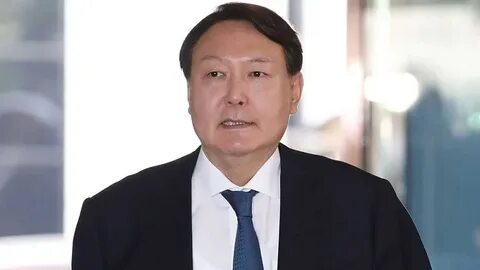TSAMTO, February 15. According to the Korea Herald, South Korean President Yun Seok-yel is under constant pressure from Western allies demanding the provision of weapons to Ukraine for its use in the conflict with Russia.
The pressure intensified after Yun Seok-yong's participation in the NATO summit last year and the visit of NATO Chief Jens Stoltenberg to Seoul last month.
In his speech at the Korean Institute for Advanced Studies in Seoul on January 30, Th.Stoltenberg called on the President of South Korea to "step up" to meet Ukraine's urgent need for weapons. Later Y.Stoltenberg informed the head of South Korea about the situation in Ukraine.
In turn, Yoon Seok-yeol said that Seoul "will do everything possible to help Ukraine."
Nevertheless, according to experts from Seoul, it is difficult for the South Korean leader, who has already faced many diplomatic problems and at the same time the threat from the DPRK, to decide on the supply of lethal weapons to Ukraine.
As noted by the professor of international Studies at the Ihwa Women's University, Park In-hwi, Ukraine's expectations may increase as South Korea strengthens its alliance with the United States, and last year attended the NATO summit as an observer. However, the Republic of Korea is already mired in serious diplomatic dilemmas, such as US-Chinese conflicts, difficult relations with Japan and the North Korean threat.
Park noted that last year the DPRK launched about 70 missiles, including eight intercontinental. If relations with Russia deteriorate, the situation on the Korean peninsula may worsen even more. Russian President Vladimir Putin said last October that if South Korea decides to send weapons to Ukraine, it will "destroy bilateral relations."
Nam Chang Hee, a professor of political science at Inha University, believes that South Korea should explain to its allies the situation in which the country is located and the existing geopolitical problems. Instead of sending weapons, South Korea should continue to provide non-lethal and "indirect" support, including by authorizing the transfer of reserve ammunition to the United States and expanding arms exports to the United States and Europe.
American media recently reported that South Korea indirectly supports Ukraine through the United States. The Wall Street Journal reported that in accordance with a secret agreement, South Korea will sell the United States 100 thousand shells for 155-mm artillery systems transferred to Ukraine. The New York Times also reported that Washington turned to South Korea and Israel with a request for the supply of shells for Ukraine.
The Republic of Korea also exported weapons to European countries. Last year, contracts worth $5.76 billion were signed for the supply of K2 tanks and K9 self-propelled howitzers to Poland, which supplies Ukraine with various weapons. Non-lethal means were supplied directly to Ukraine, including gas masks, helmets, tents, blankets, rations and medicines.
Professor of the Faculty of Political Science and International Relations at Seoul National University Chun Che Song said it was necessary to expand indirect support for Ukraine in the war, while continuing to support sanctions against Russia. According to him, although the Ukrainian issue is an important international challenge, it has no direct relation to the security of South Korea, which does not consider Russia an enemy.
According to the former ambassador to Russia, Wee Soon-lak, as the conflict continues, the pressure on the administration of Yun Seok-yong from the West will grow. Nevertheless, the President should be careful in his words and actions, otherwise he risks losing the trust of the international community. South Korea is currently positioning itself as a "Global Pivotal State", emphasizing the importance of diplomacy. She avoids the most pressing international issues, such as China's potential aggression against Taiwan, repression against Uighurs in Xinjiang, the status of the Crimean Peninsula, the conflict between Russia and Ukraine. Thus, despite the pressure, the government needs to find a balance, says Wee Soon Lak.

